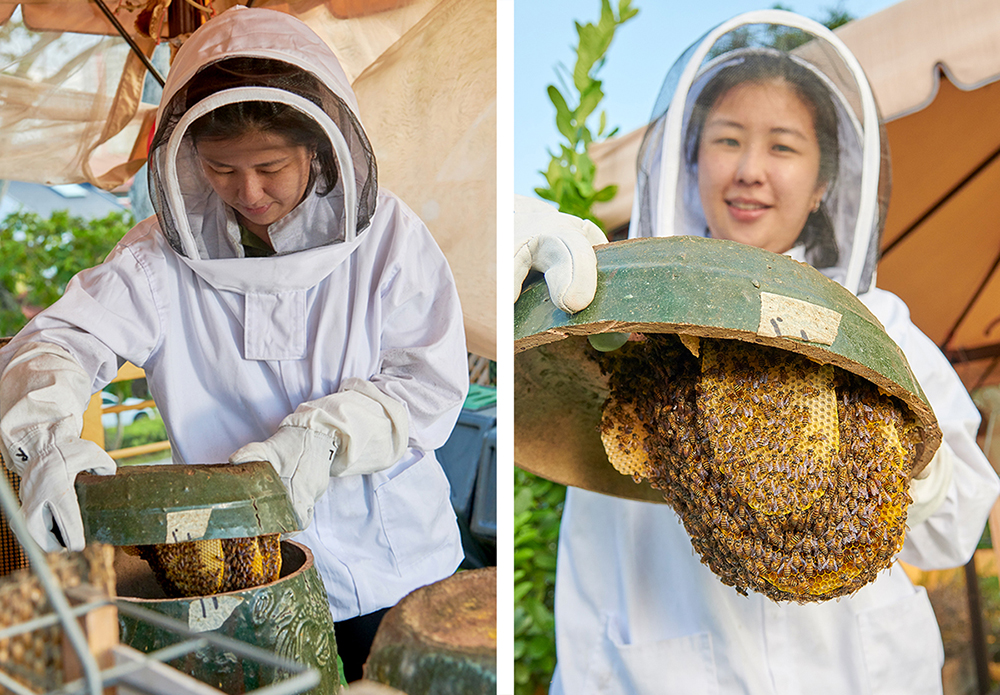The Buzz About Beekeeping

“Bees Are Out To Sting People.”
That is a common misconception about bees that Alyssa Tan hears. Since taking up beekeeping as a hobby, she has learnt the truth: by nature, bees are defensive and sting only when threatened.
Alyssa spends her weekends looking after bees at The Sundowner, an urban farm and lounge that holds one of Singapore’s three apiaries, or collections of beehives.
There, she also hosts a two-hour Rooftop Farm Experience, which includes a 40-minute “Bee Encounter”. Participants don bee suits and see the bee nests up close, learning about bees’ behaviour, bee species in Singapore, nest structures, and the importance of bees to the environment.
Alyssa’s interest in beekeeping was first piqued when she attended The Sundowner’s Rooftop Farm Experience herself in 2020. She decided to join the team, preparing for her new beekeeping role by researching extensively about bees, and getting hands-on training in how to handle bees.
Saving the Bees Sustainably
At The Sundowner, bee protection is not just a buzzword. A lot of effort goes into acquiring bees in a non-destructive way.
Unwanted bee nests are carefully relocated from homes and other areas to The Sundowner’s apiary. These nests are used as teaching tools in the Bee Encounter programme.

While bee nests are relocated from areas where they are not wanted, they may not stay at The Sundowner permanently. When the bees find a better home, they may leave. “But it is a better alternative to extermination, which is a common method of bee nest removal in Singapore,” Alyssa explains.
Beekeeping opportunities are currently limited in Singapore. But Alyssa believes that changing one’s mindset towards bees is a good first step towards protecting Singapore’s bees.
Pushing for bee nest removal rather than extermination, for example, can help to preserve the local bee population. Being less fearful of bees can similarly open up our minds to the importance of protecting them.
Building Mindfulness and Problem-solving
As with many hobbies, beekeeping has helped Alyssa to build useful skills such as mindfulness and problem-solving.
Handling bee nests, for example, has taught her how to be mindful, especially while having to focus on moving the nests safely – for both herself and the bees.

Beekeeping has also been a refreshing way for Alyssa to hone her problem-solving skills.
During bee rescues, for example, the team has to consider many factors before deciding the best method to move the nests. The bee species, nest size and location determine the type of equipment that will be used in making the extraction. Unpredictable factors such as the weather also have to be taken into account.
“These problem-solving skills are very different from what I’m used to in my day job in human capital development,” says Alyssa, a manager at the Tourism Human Capital Office at the Singapore Tourism Board.
All in all, beekeeping is not a difficult task. “All you need is a bee suit, leather gloves and common sense,” Alyssa jokes.

To get more stories like this, subscribe to the Challenge newsletter or follow the Challenge Telegram channel.
- POSTED ON
Mar 14, 2022
- TEXT BY
Hidayah Md Sham
- PHOTOS BY
Teck Lim
-
Alter Ego
Striking a Chord With Music









